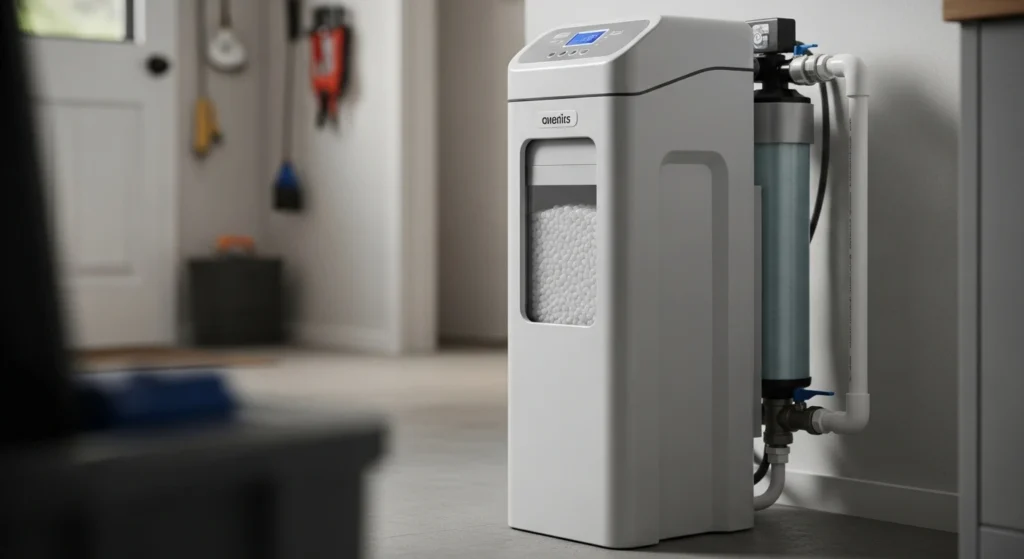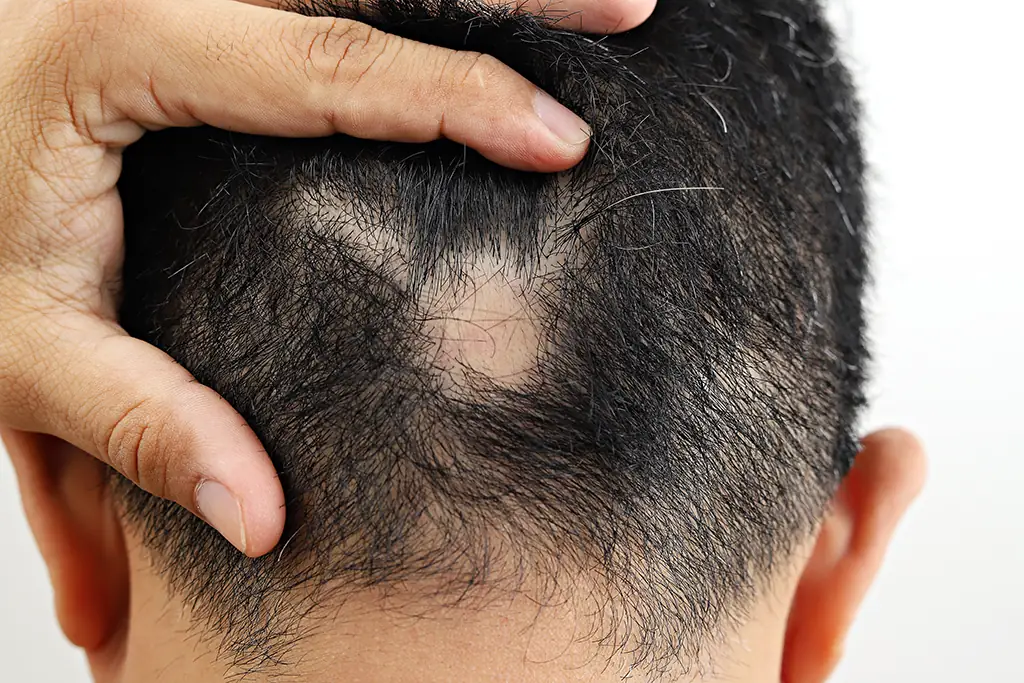Noticing that your hair feels limp, oily, or even looks thinner since switching to soft water? You’re not alone, water softener and hair loss is a frequent concern.
This article explains how water quality impacts your scalp and hair, clears up common myths, and provides expert-backed solutions. By the end, you’ll know the difference between appearance changes and true hair loss, plus practical tips to protect your hair health with confidence.
Understanding the Concern: Does a Water Softener Cause Hair Loss?

Many people worry that soft water can trigger shedding. The reality: there’s no scientific evidence that water softeners directly cause hair loss. Instead, soft water can change how your hair feels and behaves.
What the Data Says
- Studies on hard water show it can weaken hair fibers, reduce tensile strength, and cause breakage.
- Soft water, created when minerals like calcium and magnesium are removed, may leave hair feeling silky, heavier, or flatter. This can make existing thinning more noticeable, but it doesn’t damage follicles.
- Dermatologists agree: hair loss is caused by genetics, hormonal imbalance, stress, or medical conditions, not softened water.
Hair Texture vs. Actual Hair Loss
- Texture changes: Hair washed in soft water can feel slippery, harder to style, and may lack volume.
- Perceived thinning: Because soft water rinses products more effectively, natural oils may weigh strands down, creating the illusion of thinner hair.
- No follicle damage: Soft water doesn’t attack roots or scalp health.
Hard Water vs Soft Water: Impact on Hair & Scalp
Effects of Hard Water
Hard water contains calcium and magnesium salts that cause:
- Mineral buildup on the scalp and strands
- Dryness, frizz, and brittleness
- Dull color or faster fading of dyed hair
- Increased tangling and breakage
Benefits of Soft Water
- Easier rinsing, less shampoo/conditioner needed
- Hair feels smoother and silkier
- Lower risk of residue buildup
- Better hydration for both skin and scalp
Potential Drawbacks of Pure Soft Water
- Can make hair feel “too soft” and flat
- May alter scalp pH if used long-term
- Some people experience a “greasy” feel if oils are not fully rinsed out
Tip: If you’ve just switched to soft water, allow 2–3 weeks for your hair and scalp to adapt.
Hairdresser Observations
Stylists in hard-water regions often see:
- Clients with dull, brittle, or color-damaged hair.
- Significant improvement once a softener or shower filter is installed.
Expert Advice and Scientific Insights
Dermatologist and Trichologist Perspectives
- Hard water may worsen dryness and brittleness, but it doesn’t directly cause baldness.
- Soft water improves manageability but may require adjusting your hair routine.
Solutions to Mitigate Negative Effects
- Clarifying or chelating shampoos once weekly to remove buildup.
- Pre-shampoo oils (like coconut or argan) to protect strands.
- Remineralization filters or bypass settings if water feels too “slippery.”
- Different water softener types: salt-based, salt-free, and shower filters can be tailored to personal needs.
Recommended Routine for Healthy Hair with Soft Water
Balanced Hair Care
- Use a lightweight shampoo for scalp cleanliness.
- Add clarifying shampoo once a week.
- Condition mid-lengths to ends, avoiding scalp buildup.
Gentle Styling
- Limit heat styling; use protectant sprays.
- Avoid overwashing, as soft water preserves natural oils.
Supplementation & Medical Care
- Nutritional support: biotin, vitamin D, and iron (under medical supervision).
- Seek professional help if hair shedding exceeds 100 strands/day, or if bald patches appear.
When to Consult a Professional
Signs of Medical Hair Loss
- Rapid thinning, bald patches, or excessive shedding
- Family history of androgenetic alopecia
- Hair loss after illness, childbirth, or medication

Testing Water and Scalp Health
A dermatologist or trichologist can examine the scalp and follicles to rule out underlying causes.
Simple hardness test strips can confirm your water type.
FAQs
Does soft water actually make hair fall out?
No. It only changes texture, which can make thinning more noticeable.
Why does my hair feel thinner with soft water?
Because soft water rinses more thoroughly, oils can weigh hair down, giving the appearance of flatness.
Should I add minerals back into my water?
Optional. Some prefer remineralization filters, but it’s not necessary for hair health.
Can hard water worsen scalp conditions?
Yes, eczema, dandruff, and irritation may flare with hard water. Soft water usually helps.
Is a shower filter enough?
Yes, for many people, a showerhead filter works well, especially in apartments or rentals.
Next Steps
Worried that your water quality is affecting your hair?
Book a consultation with Dr. Rana Irfan in Islamabad today. Our team can evaluate your hair health, water quality, and scalp condition, then recommend personalized treatments to restore confidence and vitality.
